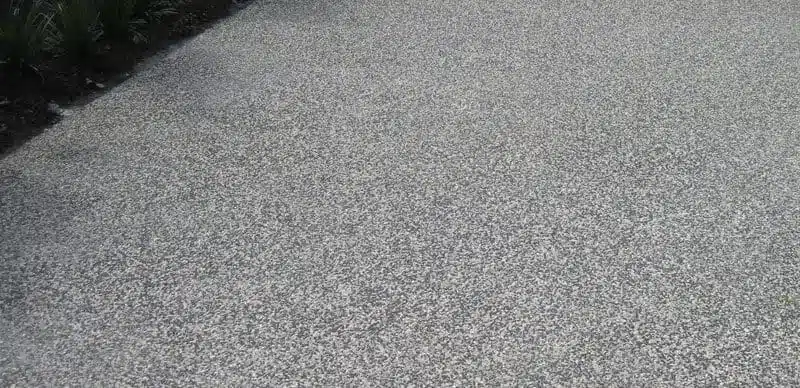Ingenious Concrete Layout: Boost Your Property with Customized Concrete Work
Ingenious Concrete Layout: Boost Your Property with Customized Concrete Work
Blog Article
Unveiling the Eco-Friendly Advantages of Utilizing Recycled Concrete in Sustainable Building Practices
In the realm of lasting building methods, the usage of recycled concrete stands as an essential yet usually underestimated source. Past its traditional applications, recycled concrete offers a myriad of environment-friendly advantages that extend far beyond the confines of typical construction materials. From minimizing environmental impact to boosting cost-efficiency, the effects of integrating recycled concrete in sustainable structure practices are substantial. This versatile product not just addresses pushing ecological worries but additionally provides a feasible option to the challenges encountered by the building industry at huge.
Ecological Advantages
Undoubtedly, among the most significant advantages of using recycled concrete is its positive influence on the environment. By including recycled concrete right into building methods, there is a considerable decrease in the demand for brand-new basic materials, leading to conservation of all-natural resources. This process aids in maintaining accumulations, water, and power that would have been made use of in generating new concrete. Additionally, the usage of recycled concrete reduces the amount of waste being sent out to garbage dumps, thus reducing ecological contamination and easing the strain on landfill capabilities.

Furthermore, the manufacturing of typical concrete is a substantial resource of carbon emissions due to the energy-intensive procedure of concrete manufacturing. In contrast, recycled concrete has a reduced carbon footprint as it decreases the demand for brand-new concrete production. This decrease in carbon discharges adds to mitigating environment modification and supports lasting building and construction methods. In general, the ecological advantages of using recycled concrete are significant and play a crucial duty in promoting environmentally friendly building approaches.
Cost-Efficiency
Achieving cost-efficiency is an extremely important consideration when assessing the usage of recycled concrete in building tasks. One of the crucial advantages of using recycled concrete is its cost-effectiveness compared to standard concrete. The production of recycled concrete involves much less power and sources as it uses existing products, minimizing the general project expenses dramatically. Furthermore, the accessibility of recycled concrete in your area can even more reduce transport expenses, making it an extra economical option for building and construction projects.
Additionally, the usage of recycled concrete can result in financial savings in landfill costs by diverting concrete waste from disposal sites. This not only minimizes the ecological effect yet additionally eliminates the costs connected with waste removal. The sturdiness and performance of recycled concrete are comparable to conventional concrete, making sure that price financial savings do not jeopardize the high quality of the construction.
Durability and Strength
Considering the substantial cost-efficiency benefits of utilizing recycled concrete, it is necessary to analyze its durability and stamina in building applications. Recycled concrete offers comparable, if not superior, resilience and strength buildings to conventional concrete. Through innovations in processing strategies and high quality control, recycled concrete can meet or surpass the performance requirements of conventional concrete. The process of reusing concrete discover this info here entails squashing, arranging, and screening old concrete to produce accumulations that can be used in brand-new construction tasks. These recycled aggregates can giving adequate compressive strength, toughness, and long-lasting performance.

Waste Decrease
When it comes to utilizing recycled concrete, waste reduction is a crucial benefit that adds substantially to environmental conservation. By integrating recycled concrete right into building and construction jobs, this waste is repurposed and drawn away from landfills, lowering the total ecological effect of construction activities.
Recycled concrete not only assists in decreasing the quantity of waste that winds up in landfills but likewise preserves all-natural sources by lowering the need for brand-new aggregate products. This process of waste reduction advertises a round economic situation within the building field, where materials are recycled and recycled to create a much more sustainable market. Furthermore, using recycled concrete can cause set you back financial savings for building jobs, as it is frequently more economical than sourcing and carrying brand-new products. Finally, waste reduction via the utilization of recycled concrete is an essential part of sustainable building and construction techniques that benefits both the building and the environment market all at once.
Energy Conservation
Energy preservation is a vital element of sustainable building and construction practices, aiming to recommended you read decrease the total power consumption associated with building operations and materials production. Substantial power savings are attained compared to typical concrete production when it comes to making use of recycled concrete in construction. The procedure of creating recycled concrete involves crushing and reusing existing concrete products, which consumes much less energy than mining, processing, and moving raw products for new concrete manufacturing. Furthermore, using recycled concrete can assist lower the need for virgin accumulation, more decreasing the energy-intensive extraction and handling of natural deposits.
Verdict
Finally, the usage of recycled concrete here in lasting construction methods provides countless ecological benefits, cost-efficiency, longevity, stamina, waste decrease, and power conservation. By including recycled concrete into building projects, we can contribute to a more lasting and environmentally friendly future. It is essential for the building and construction sector to prioritize the use of recycled products to aid decrease the environmental impact of building and construction activities.
One of the essential advantages of making use of recycled concrete is its cost-effectiveness compared to traditional concrete.Furthermore, the usage of recycled concrete can lead to cost savings in landfill prices by drawing away concrete waste from disposal sites. The resilience and performance of recycled concrete are similar to standard concrete, guaranteeing that price savings do not endanger the quality of the building and construction.

Report this page